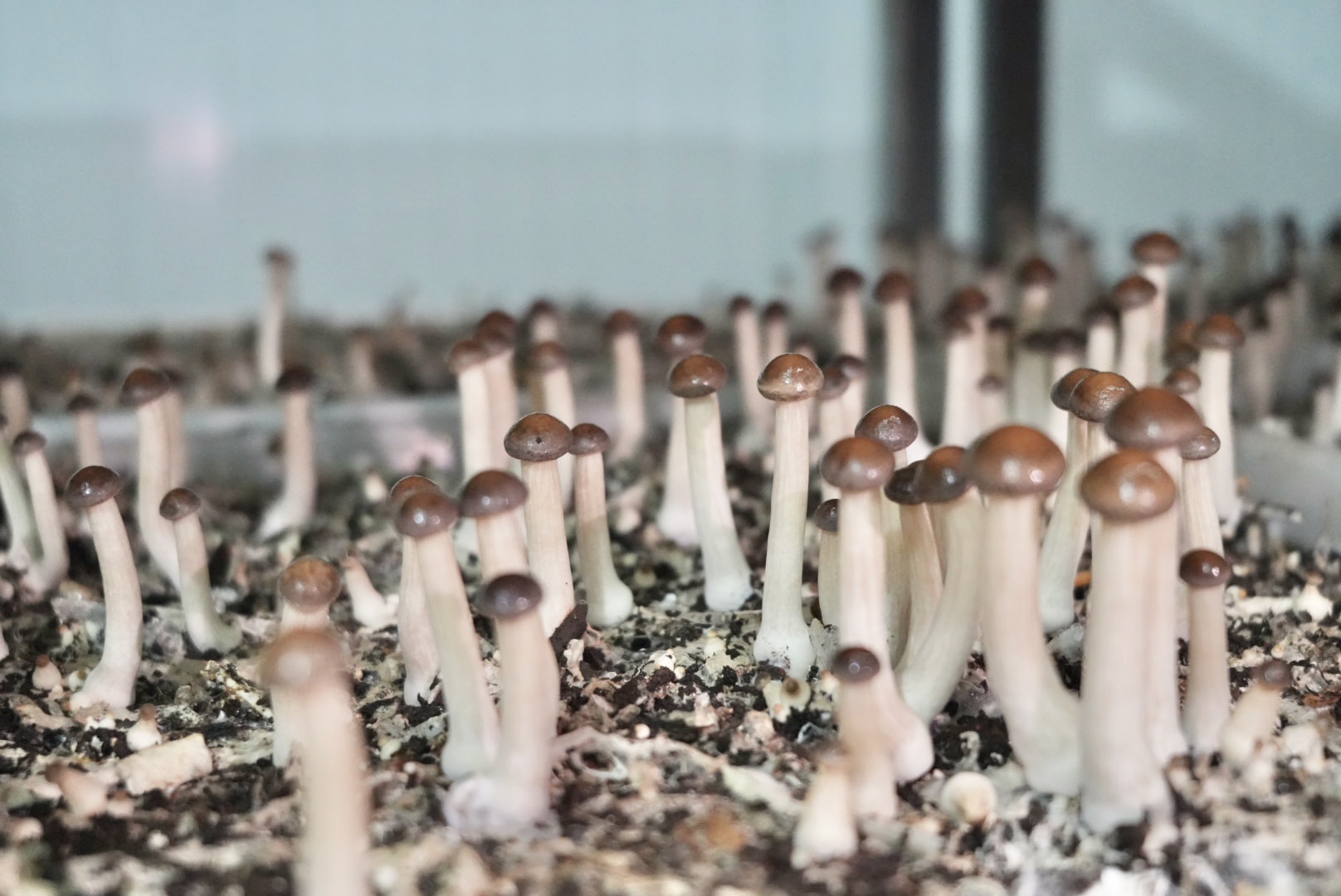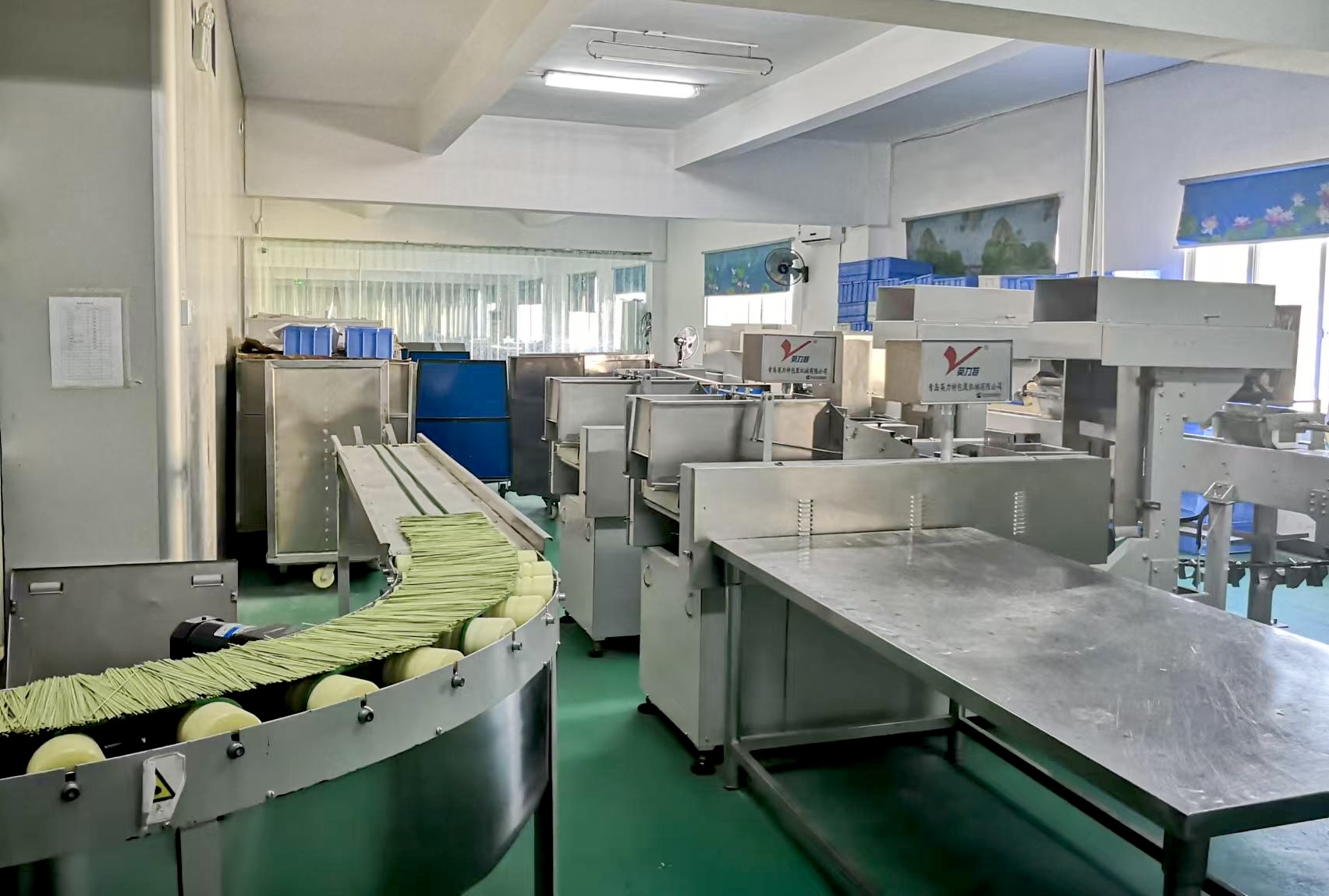Reed turns into cash cow in C China's Hunan
In winter, a bustling scene takes place at a planting factory in Fuxing village, Shatou town, Yiyang city, central China's Hunan Province. Farmers are busy harvesting mushrooms in greenhouses, while outside, freshly picked mushrooms are collected by dealers and loaded onto vehicles. In just tens of minutes, the mushrooms will reach local markets for sale.
"You'd never guess these mushrooms grow by 'eating' reeds!" said farmer He Jun, as he checked the temperature, humidity, and growth conditions inside the greenhouse. He enthusiastically introduced the local specialty, reed mushrooms, a "star product" in the area.
Grown in soil enriched with reed and fungus-growing bags, the mushrooms mature in approximately four weeks. Despite their short growing cycle, they have a long harvesting season and can generate 40,000 yuan (about $5,479.88) per mu (about 0.067 hectares) of farmland, explained He.

Photo shows mushrooms in a greenhouse in Fuxing village, Shatou town, Yiyang city, central China's Hunan Province. (People's Daily Online/Liu Shan)
Currently, the planting base cultivates multiple mushroom varieties, achieving a maximum yield of 4,000 kilograms per mu.
Li Shengbo, a member of the villagers' committee of Fuxing village, said they now have eight greenhouses for growing mushrooms and a planting factory covering nearly 1,000 square meters. They have secured a long-term sales agreement with a local company for their mushrooms. Under the agreement, the company handles the collection of the mushrooms, allowing the villagers to focus solely on growing them without concerns about sales.
Reed, once used for making paper in Yuanjiang city, administered by Yiyang, is now being repurposed as feed for mushrooms. This transformation has revitalized the local economy, with reeds becoming a valuable resource once again.

Photo shows reeds in Yuanjiang city, administered by Yiyang, central China's Hunan Province. (Photo/Zhong Zubiao)
Developing the reed mushroom industry is only the first step for the area.
Specialty crop cultivation, product deep processing, and integrating agriculture with tourism are all part of the local government's efforts to explore new green development paths for reed resources. The once-overlooked wild reeds are now bringing fresh opportunities for regional growth.
In the product showcase of Hunan Boda Tianneng Industrial Co., Ltd., a variety of deep-processed products made from reed shoots, the tender stems of reeds, such as pressed candy, solid beverages, and dried vegetable products, are displayed.
The founder of the company, Yang Guoshun, is a local from Yuanjiang. In 2015, he returned to his hometown and decided to invest in the transformation of the reed industry after seeing the expansive reed marshes along the lake.

Photo shows the noodle production workshop of Hunan Boda Tianneng Industrial Co., Ltd. The reed shoot is a material for this noodle. (Photo courtesy of the interviewee)
Currently, Yuanjiang has a processing capacity of 25,000 tonnes of reed shoots and a deep processing capacity of 5,000 tonnes. By the end of 2024, the comprehensive output value of the industry was estimated at around 3.2 billion yuan, according to Xiong Libo, director of the management office in charge of the reed shoot and mushroom industry in Yuanjiang.
"During the harvest season, the industry can provide over 5,000 job opportunities for locals, with an average increase in income of 6,000 yuan per person," said Xiong.
Photos
Copyright © 2025 People's Daily Online. All Rights Reserved.









